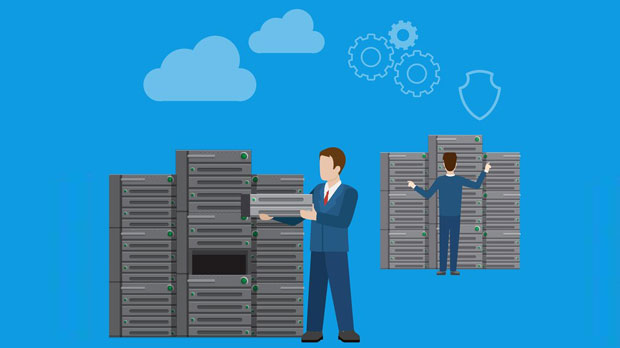residential proxies have become essential tools for many businesses and individuals seeking to maintain privacy, security, and operational efficiency in their online activities. Unlike data center proxies, residential proxies route traffic through real user devices, providing a higher level of authenticity and anonymity. These proxies offer numerous uses, including web scraping, bypassing geo-restrictions, managing multiple accounts, and improving cybersecurity. Understanding these uses is critical for businesses and individuals who need to leverage residential proxies effectively, whether for marketing, research, or security purposes. 1. Web Scraping and Data CollectionData Scraping: A Key Application of Residential ProxiesOne of the primary uses of residential proxies is web scraping. Web scraping involves gathering large amounts of data from websites for various purposes, such as market research, competitive analysis, and price monitoring. Since scraping can be detected by websites, many use residential proxies to mask their identity and avoid IP bans.Using residential proxies for web scraping ensures that requests appear as if they are coming from real users rather than bots, making it more difficult for websites to block or restrict access. This is especially important for e-commerce businesses, market analysts, and anyone who relies on up-to-date information for decision-making. 2. Bypassing Geo-RestrictionsAccessing Content GloballyResidential proxies are often used to bypass geo-restrictions. Many online services, including streaming platforms, social media networks, and e-commerce sites, impose geographic barriers to restrict content availability. For example, some videos may only be accessible in certain countries, and users from other regions may face limitations when trying to access these resources.By using residential proxies, individuals and businesses can disguise their true location and access content that is otherwise unavailable in their region. This ability is particularly valuable for digital marketers, researchers, and travelers who wish to access location-specific content or services from around the world. 3. Managing Multiple AccountsSimultaneous Account Management Without Risk of DetectionAnother significant use of residential proxies is for managing multiple online accounts simultaneously. Many online services, including social media platforms and e-commerce websites, have strict policies against multiple accounts being accessed from a single IP address. This can be a problem for businesses that need to run several accounts for marketing, customer service, or other purposes.Residential proxies allow users to appear as if they are accessing these accounts from different locations, reducing the risk of being flagged or banned. For instance, social media managers, e-commerce sellers, and digital marketers can manage multiple accounts without the worry of violating platform rules. By rotating through different residential IPs, they can ensure that each account remains in good standing. 4. Enhancing Online Privacy and SecurityProtecting Personal and Business InformationPrivacy is a growing concern in the digital age, and many individuals and businesses use residential proxies to safeguard their online activities. When using public networks or accessing sensitive information, residential proxies provide an additional layer of security by masking the user's IP address and routing traffic through legitimate devices.This is particularly important for businesses handling sensitive data or individuals conducting activities such as online banking or e-commerce transactions. By masking their location and identity, users can protect themselves from hackers, cyberattacks, and data breaches that could compromise their personal or business information. 5. Ad VerificationEnsuring Ad Campaign EffectivenessAdvertising is a crucial part of any digital business, and ensuring that advertisements are being displayed properly is key to maintaining a successful campaign. Residential proxies are used for ad verification, allowing businesses to check if their ads are appearing correctly on websites across various locations and devices.By using residential proxies, companies can confirm that their advertisements are shown to the right audience, in the right regions, and at the correct time. This helps optimize ad spending, improve campaign results, and ensure that there are no discrepancies between the intended audience and actual delivery. 6. SEO Monitoring and Rank TrackingImproving Search Engine OptimizationSearch Engine Optimization (SEO) is a key element of online marketing, and businesses often use residential proxies for SEO monitoring and rank tracking. Residential proxies allow users to track search engine rankings from various locations, enabling them to see how their website ranks in different countries or cities.Using residential proxies for SEO purposes ensures that the rankings are not skewed by a single location or IP address. This is particularly useful for global businesses or agencies that want to track how their website is performing in multiple markets. With this information, they can adjust their SEO strategies accordingly to boost organic traffic and improve visibility in search results. 7. E-commerce Price Comparison and MonitoringStaying Competitive in E-commerceFor e-commerce businesses, residential proxies are essential for monitoring competitors’ pricing strategies. By using residential proxies, e-commerce sellers can check their competitors' prices without revealing their IP address or location. This allows businesses to gather data on pricing trends and adjust their own strategies to remain competitive.Additionally, residential proxies can help businesses track inventory levels, promotions, and other market dynamics to make informed decisions on pricing, sales, and inventory management. This information is invaluable for staying competitive in the fast-paced world of e-commerce. 8. Fraud Prevention and Anti-Bot MeasuresProtecting Against Fraudulent ActivitiesResidential proxies are also used to prevent fraud and detect malicious activity online. Since residential IPs are associated with real users, they can help distinguish between legitimate traffic and bots or fraudulent actors. Businesses can use residential proxies to perform activities such as traffic analysis, bot detection, and account verification.By using residential proxies, companies can detect and prevent fraudulent transactions, reduce chargebacks, and protect their platforms from malicious activities that could harm their reputation or lead to financial losses. ConclusionThe Value of Residential Proxies in the Digital AgeResidential proxies for sale provide invaluable tools for businesses and individuals seeking to operate effectively and securely in the online world. Whether it's for web scraping, managing multiple accounts, bypassing geo-restrictions, or ensuring online privacy, residential proxies offer flexibility and security that traditional data center proxies cannot match. As digital activities continue to evolve, the role of residential proxies will only become more critical, allowing users to navigate the internet with confidence and anonymity.
Aug 19, 2025



































































